Book review: Near Death Experiences: The Rest of the Story
by P.M.H. Atwater
★★★★
Before I begin this review, I should explain my interest in NDE’s from a religious viewpoint. It’s not just that they hint of a possible afterlife, because I honestly don’t know what to make of that. It’s that they dig down below the surface of religion to what Atwater labels a “core experience.” Says Atwater,
“The core truth or root of all religions and all sacred traditions is virtually the same throughout the world and always has been. It is the spiritual. It is that personal experience of Source/Deity/Allah/God. The majority of near-death experiencers glimpse that core truth in a moment of self-surrender they neither understood nor were prepared for, and they are forever changed.” (p. 104)
Atwater is not a scientist, and doesn’t approach her research from that direction. No double-blind studies with a control group. But she has logged 43 years of research, involving nearly 7,000 people. She explains,
“I am an observer and analyst who specializes in fieldwork … My protocol is that of a police investigator. I cross-check my findings with different people in different parts of our country at different times.” (p. 238)
By the way, I’m an outsider. An estimated one in twenty people remember a near-death experience, and Atwater has enjoyed three herself. But No NDE for me, even though I should qualify, having drowned once. I’m still peeved that I got nothing out of that.
Atwater’s new book is not as much about the experiences themselves as it is about the profound affect they have on those who survive them. People are changed by this brush with the divine, whether we label it a religious experience or not. I do enjoy when Atwater lets the experiencers speak for themselves, leaving it up to us to make sense of the mysteries. When she jumps in, speaking in her exotic language, using phrases like “electromagnetic spectrum,” I tend to lose focus. I’m a newbie to the paranormal, sorry.
This is a world where animals often speak and angels often fly on wings. I say “often,” because different people, with different backgrounds, have different experiences. Hell is only hot and fiery if you’re a Christian fundamentalist. Most others recalled hellish NDE’s as cold and clammy. Dark tunnels often connect this world to the next, but they didn’t used to. Tunnels with a light at the end were quite rare in NDE’s before Robert Moody’s book Life After Life became a bestseller, and the public began to fixate on tunnels. Too bad; everybody loves afterlife tunnels and the explanations they provide for wormholes, time travel, and shamanic visions.
But one commonality in these experiences is that they are life-altering, and for that reason alone, the rest of us should not ignore what we can’t explain. What these people experience will probably never be a part of our worldview—most of us are trapped in a reality wrapped around matter—but NDE experiencers’ connection often remains after the event, like a window left open to the supernatural. They are suddenly changed. Experiencers begin to remember the future before it happens, see auras of energy, see dead people. Atwater helps experiencers adapt back to a world that has become foreign, and helps the rest of us adapt to experiencers who have been radically changed. This is no trivial issue; 21% of experiencers in Atwater’s research attempted suicide afterward. 75% divorced. Both spouses usually voiced the same complaint: “I don’t know that person anymore.” The vast majority return from their experiences convinced that there is a “plan” for life, yet two-thirds leave organized religion, or never have a religious commitment to begin with.
Atwater loses me when she delves into her otherworldly explanations for these phenomenon, talking about holograms and power punches and colloidal conditions. When she shifts from paranormal language into scientific explanations, I get at least a glimpse of what she’s talking about, but can’t really relate the explanations to scientific principles other than as vague parallels meant to describe the indescribable. “Superfluidity” doesn’t really explain how out-of-body travelers can go through walls. “Quantum entanglement” has a long way to go before it explains entangled minds. “Multiverses” is a concept I find more than a little disturbing. But these comparisons do help me relate. In many ways, Atwater’s book will feel like home to experiencers but leave outsiders like me still out in the cold. Four stars for the research and fascinating peek into a world that remains a bizarre mystery to the uninitiated.
One final note: Atwater’s opinions about Jesus and the Bible don’t increase her credibility. She should probably have left that to the Jesus scholars. 

Book review: Revelation for Everyone
by N. T. Wright
★★★★
This is a friendly, feel-good peek at the bloodiest book in the Bible. As one who has written about Revelation from a historical-critical viewpoint, detailing all the gory first-century details which inspired the Book of Revelation, Wright’s approach felt a little to me like bouncing happily along the surface. This is not a criticism; Wright’s Revelation is more palatable than mine, certainly more inspirational for a 21st-century audience.
Given Wright’s more conservative brand of Christianity, it’s eerie how often he and I agree on the meaning of the Bible’s most mysterious book. Wright recognizes the conflict between Christianity and Caesar worship pulsating through Revelation. He recognizes (as does nearly every serious scholar of Revelation) that the “Beast of the Sea,” identified by the hideous number 666, refers to Nero Caesar, and Wright pays homage to the rumor that Nero had come back to life. He counts, like I do, the seven kings of Revelation beginning with Augustus, not Julius Caesar, the popular choice among preterists. He even acknowledges the frightening urgency in the tone of Revelation, because its prophecies were expected by John to be fulfilled immediately. Indeed, some had already occurred, like the two witnesses of Revelation, before John put pen to paper.
Yet in all these cases, Wright glosses over the historical connections and emphasizes, instead, Revelation’s relevance to today. His focus is for Christians of today, recognizing that we still await the moment of Christ’s return. The “earthquakes” of Revelation (which should be read non-literally as merely earth-shattering events) remind us of the fall of the Berlin Wall, or the smashing of the Twin Towers. That’s a relevant stance, yet it did leave me feeling like Wright’s treatment was a bit artificial, regardless of his claim … that Revelation “in fact offers one of the clearest and sharpest visions of God’s ultimate purpose for the whole creation.”
This highlights the fascinating thing about scripture, and in particular the book of Revelation. Its vivid imagery and Christian lessons relate to followers of every century. Unless you read the book of Revelation literally—a method of reading that was appropriate only to one age and audience, the people of Asia Minor to whom John was actually writing—Revelation continues to be just as meaningful and “true” today as then.
Do not miss the final chapters, about the New Jerusalem! Wright reminds us that “Jesus, according to the whole New Testament, is already reigning.” He points out the fascinating verse in Ephesians 2:6, where the church is “seated in heavenly places in the Messiah Jesus.” As to the binding of Satan, Jesus had already accomplished this (Matthew 12:29). What it all means is the great promise: God has come to dwell with humans. So many readers of Revelation assume that the final description would be about heaven that they fail to see the glory of God’s New Jerusalem on earth—a “newness” we can share in today. Heaven and earth are forever joined together.

Book review: Meeting Jesus Again for the First Time
by Marcus J. Borg
★★★★★
I read this little book several years back, and wanted to make sure it isn’t forgotten. Marcus Borg is one of my favorite writers, and this is what I’ve always considered his “coming out” book. The one that lays bare Borg’s understanding of the historical Jesus, and Borg’s journey from blind belief into a more complete, contemporary appreciation for Jesus and what his message means for mankind today. In this book is a Christianity for the 21st century and a Jesus who can be embraced by everyone.
One quote sums up the book well: Borg describes Jesus as a “spirit person, subversive sage, social prophet, and movement founder who invited his followers and hearers into a transforming relationship with the same Spirit that he himself knew, and into a community whose social vision was shaped by the core value of compassion.” I’m uncertain if Borg would use precisely the same words today, sixteen years later, because the wheels of Jesus scholarship continue to turn, but I’ll bet he wouldn’t change much … he has found the core Jesus. Meeting Jesus again for the first time, we are invited to appreciate Jesus’ beauty against a backdrop of dominating religion, and share in Jesus’ struggle to help compassion overcome purity. It was this very purity system of the Jews which led to social injustice, and which Jesus found most constricting.
This is one of those books everyone should read before giving up on Christianity.

Book review: Contours of Pauline Theology
by Tom Holland
★★★★★
This is a deep, controversial look at some of the more important aspects of Paul’s writings. Many scholars essentially consider Paul the founder of Christianity, recognizing his contributions in building a Gentile religion. But Holland adamantly disagrees, and points to Paul’s Jewishness by addressing the dependence of Paul’s theology on Hebrew Bible themes. Paul, he says, never left the religion of the Old Testament and never departed from the teachings of Jesus.
Central to Holland’s thesis is the Passover and Exodus teachings, which he shows were a strong part of Jewish doctrine. Observing Jews anticipated a second exodus of some sort—though it appears there were differing ideas of what this second exodus would be like—and Holland recognizes this theme weaving its way through Paul’s writings.
Holland leans on the community aspects of the Passover and Exodus themes to highlight two different ways of thinking: Individualistic, and Corporate. Consider Paul’s writings about the Body of Sin. Does Paul mean our individual bodies are prone to sin, and warn about individual sinfulness, or is he concerned about community sanctification—mankind as a whole, or the Jewish nation, or the Christian community? Paul, says Holland, is speaking of the state of unredeemed humanity in its relationship to Satan (Sin). A man or woman’s righteousness depends upon the community to which they belong … a very Semitic way of thinking. I can’t say I’m convinced yet, but before rejecting this line of thinking out of hand, Holland’s arguments are worth further study, and I hope to read over Paul’s letters soon from this vantage point.
So where do Gentiles fit in? The prophets said that the Gentiles would become members of the covenant community when the New Exodus had taken place.
Paul writes that “your body is a temple of the Holy Spirit.” Most read this to mean God takes up residence in our individual bodies, but Holland argues it should be read in a corporate manner: the church, or community, is the temple of the Spirit. When Paul writes, “Do you not know that he who unites himself with a prostitute is one with her in body,” Paul speaks not of an individual visiting a prostitute, but of a community frolicking with Satan.
Also in the context of the Passover/New Exodus/Community thinking, Holland addresses the meaning of baptism, redemption, justification, and the implication of Christ as the firstborn. He explains that the role of the firstborn in the Passover was vitally important to the early church, who used its imagery to describe the work of Jesus.
Holland concludes that Paul did not tamper with the Christian message; he is not responsible for leading the church to a “high Christology.” Rather, the church held this view from reading the prophets long before Paul converted. Thus, when Holland examines the Colossian hymn, which many scholars believe was not penned by Paul at all, he finds it consistent with Pauline thinking in terms of Christology and the motifs already discussed, and concludes that “there is therefore no need to treat the letter as anything other than a Pauline letter.”
Not an easy read, but well worth the effort.

Book review: In That Day Teachings
by Robert Burke
★★★
Once in a while, I agree to review a book which turns out to be a bit more pointed than I expected, and doesn’t really jell with the universalistic atmosphere of my blog. My response is usually to provide a “non-rating” of three stars, make it clear to readers that I avoid endorsing any particular set of beliefs, and offer a short description of the product without taking a stance. Such is the case with Robert Burke’s collections of In That Day poetry and essays.
Robert has amassed an impressive collection of nine books that read a bit like a writer’s journal. He has obviously poured his heart into this work. Book one is a preliminary introduction; book two contains “heavy doctrine and sharp criticism of the current dysfunction worldwide church;” and books three through nine are inspirational and instructive poetry. I was given books one and three for review.
Best, perhaps, to let Robert describe his poetry in his own words:
What is In That Day? It’s God’s biblical time of uplifting denouement. It’s His period on the end of His sentence. No, it is not the end-of-days. Nor is it that crazy notion some call rapture. It is simply His day when he can tolerate stupefied Christians no more! He wants a greater mind-meld with us, His creation. And by God, He will get what He wants!

Book Review: Revelation: The Way it Happened
by Lee Harmon
I apologize for copying a lengthy article in its entirety, but I’ve come to respect Henry’s approach to Biblical studies. A few months back, he read and commented on my book, Revelation: The Way it Happened. Here are his thoughts on John’s Apocalypse and my historical approach.
(A review by Henry Neufeld of Henry’s Threads, http://henrysthreads.com/ )
*********
When I encountered Lee Harmon in cyberspace, or more precisely he encountered me, and I learned that he’d written a book about Revelation, I was immediately hooked. Besides, Revelation – The Way it Happened is such an interesting and suggestive title. Let me warn you that, as usual, this will be less a review and more thoughts and notes on the book and on the topic.
I grew up on Revelation. Well, Daniel and Revelation. As a young Seventh-day Adventist I would hear a new series of evangelistic sermons on the topic at least once a year. We’d all go, because we obviously didn’t want to have the venue (often a tent) be empty.
And each year I heard an updated message. Revelation meant something just a bit different as all the charts and events were rearranged to suit the current news, and the evangelist would explain how precisely current events fit the right moment in the prophecy.
It took me a few years, but I began to notice the problem. When I decided to leave the Seventh-day Adventist Church, eschatology was one of the key issues, along with the doctrine of the remnant which in turn derives from SDA eschatology.
There are four major streams of interpretation of Revelation: preterism, historicism, futurism, and allegorical. Preterism holds that all or most of Revelation was fulfilled at the time (or failed of fulfillment). Historicism sees long periods of history represented by the main portions of the book (churches, seals, and trumpets especially). Futurism hold that most or all of the book remains to be fulfilled. The allegorical view comes in a variety of forms, but generally holds that the symbols in Revelation may be used to represent events at many times and places, but are not predictive of specific times and events for the most part.
SDAs keep historicism alive. The problem is that when the scheme used was first produced, it led nicely through history up to that time (the “great disappointment of 1844), with a relatively short “time of the end” coming immediately afterward. Even after the great disappointment, when SDAs took the position that they had been wrong to set a date and time, but still assumed that the end would come very soon. (To get a more detailed rundown on this issue, in fact a very detailed one, see Edward W. H. Vick, The Adventists’ Dilemma.)
A similar issue is present for futurists, in that the various players and the details of end time events change as time moves forward, even though they don’t have the problem of a timeline that stretches from the 1st century to the present, and must in turn be stretched further to accommodate continuing history. Futurists nonetheless have to contend that John the Revelator (whoever that was) had a vision of far future events which was attached to a short letter about current events written to contemporary churches, and that there was a gap of at least a couple of millenia between the two. Though Revelation 10:6 proclaims “no more delay” this interpretation proposes a great deal of delay indeed. Of course, once one places the declaration that there will be no further delay into the context of a much delayed prophecy chart, one can avoid the contradiction, provided one is flexible enough.
So that leaves us with preterism, which has most of the book refer to events contemporary to its author, and the allegorical view, which often doesn’t attach the material to much of anything.
My own bias is in favor of an allegorical view, but one that is rooted in 1st century events. Thus I see Revelation 12 as an excellent depiction of spiritual (and political) conflict no matter when it happened, but I also accept a historical grounding in the birth of Jesus and the church.
Having rambled thus far, let’s get to the book. I usually list strengths first and then weaknesses, but so I can get on with the fun, I’m going to list weaknesses first.
If you pick up this book thinking you’re going to get a scholarly dissertation, complete with full examination of all the views and plenty of footnotes, you’ll be disappointed. It’s a presentation of its author’s interpretation with a few references to other views, and very little in the way of footnotes. There’s a good extra reading section, though I’ll confess it doesn’t match what I’d recommend in many cases. It’s still a good listing. There are many books on Revelation, and it would be shocking if two lists coincided completely.
On the other hand, if you pick up the book thinking you’re going to be carried gently into understanding the book via light fiction, you’ll also be disappointed. There are multiple threads, one of them a contemporary story within a story (a father telling his son a story), interspersed with commentary and some historical narration. Font and style indicators guide you through all of this, but you’ll probably feel a little bit scattered in the early stages.
Having said all of that, let’s get to the strengths. The writing is clear and direct. It’s really easy to follow the story lines once you get them straight in your head, and despite my note about a lack of footnotes, there is no lack of references to biblical and other literature from the time.
One of the great errors Bible students make is that they expect to be able to go read Revelation on its own and come to some sort of understanding. The book is filled with quotations and allusions, some very close, some more distant. But there are very few words in the book that don’t connect somewhere. Harmon does a good job of referencing much of this material.
I was especially gratified to see the extensive use of the connections with Ezekiel, which often don’t get enough attention from modern futurist commentators. Of course Daniel is also important as is Zechariah but so are many other books. Getting a feel for the symbolism also requires use of other apocalyptic literature, and Harmon provides quite a number of references.
I have been attracted to the 70s or 80s dating that Harmon uses myself, but I remain unconvinced. I think it’s a possible dating, but my main criticism of the interpretation provided may be an excessively close tie between the imagery and real world events. It’s possible, but I think it is a bit of a stretch.
Overall, I’d say that while I find several specific theses in the book questionable, it’s a good read and it provides enough references to primary literature to help set you on your way to some rewarding study. My hope would be that readers of this book will turn to those primary sources and help change the way Christians speak about Revelation.
The fact is that we’ve been proclaiming “soon,” in the sense of “just around the corner” for so long, that it no longer sounds very convincing. If people did this in any field other than religion, we’d call them liars. There’s a way to understand “soon,” but this isn’t it. If the futurist interpretation of Revelation is correct, one would have to suppose that God lied to those who first heard the words. We need to rethink the way we teach prophecy, and do it less as prediction and more as admonition.
The purpose of apocalyptic is encouragement at a time of trouble. There is encouragement there that can apply at any time and place. There is also an ultimate hope. But the reason to carry out our mission as Christians, Christ’s body in the world, is not that Jesus may come and end it all at any moment, but rather that Jesus is already near and our own end is always near. And because Jesus is near we can face our own hardships and ultimate passing from this world with hope.
I believe in the “resurrection of the body and the life everlasting” as the creed says. But I don’t believe that the passage of time is the main issue. Whatever the length of time until the end, God is present.
In the meantime, you could do much worse with your time than read this book and let it challenge you to further study.

Book Review: The Case Against Evangelical Christianity
by Dr. Rick Herrick
★★★★
Rick Herrick’s book is a friendly, easy-to-read argument against “Evangelical Christianity.” Rick is a self-proclaimed Christian, but is unable to promote the Bible as a history book to be read literally. Welcome to the club, right? The back cover promises a “hard-hitting attack against Christian fundamentalism,” but I really didn’t get that feeling. Instead, Rick presents common sense reason after reason for replacing fundamentalism with Jesus’ dream of a “Kingdom of God.” Rick never does precisely nail down his own vision for the Kingdom, but love plays a pivotal role.
Rick’s views are down to earth and should strike a chord with most any thinking person. From a scholarly viewpoint, I didn’t read anything terribly profound or original. Any Bible scholar is aware of the Bible’s more talked-about contradictions and disproven claims, and Rick doesn’t delve much deeper than this. But Herrick knows his Bible, he knows Israel’s history, and he has a knack for writing simply, presenting commonplace arguments that should convince any Bible reader of its errancy. It’s a pretty quick read, but Herrick doesn’t need deep research or complex theological arguments to make his point; fundamentalism just simply doesn’t hold up under even a cursory examination.
This is a book for any Christian who has read too much of the Bible to embrace its portrayal of God, yet shares an appreciation for their Christian heritage and an awe for the mystery of love.

Book review: The Devil Wears Nada
by Tripp York
★★★★★
TRIPP! Tripp, I’m beggin’ ya man, please keep me on your list of reviewers for future books! I haven’t laughed this hard in a long time. Needless to say, I got absolutely nothing done yesterday.
Tripp’s quest to find God by first finding the devil may be as serious as it is bizarre, but it’s just so doggone funny. Tripp confesses that you can’t find God through philosophical argument, but then proceeds to search for Satan in precisely that logical manner, scheduling interviews with a number of religious (and anti-religious) figures. Along the way, Tripp finds Satan in a malfunctioning microphone, a cranky kitty, and a buncha God-robbin’ poor people who think it’s more important to eat than tithe. In fact, Satan hides just about everywhere—except around those darn Satanists—but each interview just adds to Tripp’s frustration in not being able to get a tangible hold on the slippery critter’s pointy tail.
Tripp can’t handle incongruity, by the way. He starts getting about as cranky as Cindy Jacobs’ possessed cat, and then has a hard time harnessing his cynicism, which leaves a lot of bewildered interviewees in his wake. His research steers inexorably and frustratingly to an anticlimax, a Devil wearing nada, until, finally, trooper that Tripp is, he decides to go all in. He agrees to sell his soul to the Devil. No big deal, he figures: His belief in the soul has been dashed. He prepares a devilish concoction of soundtracks to hold him for several long lonely hours, locates a suitable “dirt crossroads,” sketches out a devils trap in the dirt, and waits to see if his offer will entice the old dragon. Hey, this is suddenly turning scary, because beneath Tripp’s now-nervous humor lies an undercurrent of serious flirting with the occult. It’s now or never. And what happens next is …
… aw, I can’t tell you. But my smile disappeared in the final pages, as a philosophical answer to Tripp’s search for Satan and God bubbled up from the underworld.

Book review: Off Target, 18 bull’s-eye exposés
by John Noe, Ph.D
★★★★
Yikes! Noe comes out of his corner with fists swinging in this one. If we wanna save the world, we better listen up. Noe gives us 18 short, passionate exposés highlighting his psuedo-preterist interpretation of scripture.
Most of them are a little too feisty for me, so I didn’t connect quite so strongly with this book as I did with Hell Yes / Hell No, my first book by Noe. This time around, Noe has bypassed the balanced approach of presenting both sides of his arguments, and resorted to straight talk. He’s frustrated at the way Christian beliefs in the last couple centuries have shifted from postmillennial to dispensational premillennial views—with its teaching that the world is supposed to get worse and worse before Christ returns—and bemoans how this change “perfectly coincides and statistically correlates with the withdrawal of Christians from societal involvement, the rise of godless rule, and the decline of morality and public life here in America.” Noe believes our nation was founded on Judeo-Christian principles, with Christianity once the moral influencer in our society. He complains about the recent exodus of our youth from today’s churches, blaming improper teachings of what to believe.
All this can be set right by jettisoning our “dumbed-down Christianity” and reading the scriptures for what they say. When Jesus promises the new age will arrive “within a generation” (40 years), we need to take him at his word, and recognize the role that the war of 70 AD played in Christian history. Let it be known that, while I’m no preterist, I do sympathize with Noe’s view. You cannot lift the New Testament out from the shadow of that horrendous war. We do the Bible a disservice by pretending its writers prophesied a time in their distant future.
Noe has some legitimate arguments, but so does the other side. He points out, for example, that in the final verses of Matthew Jesus promises to never go away again, and concludes that Jesus won’t be coming back because he never left in the first place. Of course, the book of Acts says just the opposite, that, as Jesus ascended, he promised to be right back. So, Noe compromises by explaining that Christ comes and goes as he pleases. It’s true that Hebrews says Jesus “will appear a second time,” but Noe points out that this doesn’t confine Jesus’ comings to only two.
My purpose is not to argue with Noe (his staunch belief in the Bible as everywhere true would leave us with little common basis for debate) but to point out that there are at least two sides to every argument, so believers who consider the Bible inerrant will be forever squabbling because of the varying beliefs of its writers. Noe is at his best in arguing the urgency of the first century Christian message and its dream of a Kingdom, but I couldn’t share his analysis and admiration for the Book of Revelation as the highlight of that Kingdom. Revelation, he says, is “the only source that unveils and reveals Jesus in his present-day, pertinent, and full exalted, glorified, transformed, transfigured, and transcendent reality. … This is the Jesus each of us, today, needs to meet, know, and take seriously.”
Ugh, not me. Frankly, Revelation is a literary masterpiece, my favorite book in the Bible (I published a book about it a year ago: www.thewayithappened.com), but its Jesus is ugly and icky. Revelation’s vengeful pipedreams could have derailed Christianity; thankfully, the Johannine Community out of which it sprang discovered it was better off leaning on John’s Gospel … the gospel of love.
So, okay, it turns out that Noe and I have our differences. Yet I must admit, his book and its 18 theses are well worth reading. His research is deep and relevant. More than anything else, Noe’s new argumentative book does indeed highlight how the Bible should not be “dumbed down,” how it deserves to be read carefully and thoughtfully. By the time Noe reaches his 18th exposé, he has circled around to where he and I, even with our vastly different Christianities, are in harmony. In his final chapter, titled Your Worldview, Noe discusses Jesus’ paradigm and the Kingdom of God. This is what Christianity is all about! When will we stop “futurizing” the Kingdom and start living it? While I can’t quite walk Noe’s pathway of staunch preterism and inerrant scripture, I applaud its destination, and dream of the day when all Christians share Jesus’ vision of a Kingdom. If Noe’s pathway leads us there, we could do far worse.

Book review: Tim Tebow, Through My Eyes
by Tim Tebow, with Nathan Whitaker
★★★★★
Well, it’s Sunday, and there’s no football. The Superbowl is over. Desperately clinging to another passion (NFL football) and hoping to excuse it as religious reading, I picked up Tim Tebow’s book. Tim, the latest God-fearing sports sensation.
Don’t let me fool you: This is a football book, not a book about religion. More than anything else, you’ll be reading about Tebow’s football experiences, including his remarkable college career. Tebow’s success in football boils down to one thing: an obsessive drive. He simply cannot slack off. “When we think we can do less than our best, when we think others are not watching, we’re cheating ourselves and the God who created us.” But it’s more than wanting to do right by God. Tebow just can’t accept losing. His mantra: “Somewhere he is out there, training while I am not. One day, when we meet, he will win.”
Here’s the deal: Much as I wince at athletes who praise God after every touchdown, I wound up really liking this Tebow fella! Yes, Tim feels the need to evangelize, given the special opportunity he has been given in life, but his religion is grounded. He may print Bible verses under his eyes when he plays, hoping for a camera close-up, but he doesn’t consider himself God’s answer to the world. A couple typical Tebow quotes:
“I know it sounds dumb to be praying over a football game … I’m not sure God is into who wins or loses .. But since my parents raised me to pray about anything that’s on my heart, I pray—even if some of those things are trivial in the overall scheme of things.”
“People often seem to think that when you’re following the Lord and trying to do His will, your path will always be clear, the decisions smooth and easy, and life will be lived happily ever after and all that. Sometimes that may be true, but I’ve found that more often, it’s not. The muddled decisions still seem muddled, bad things still happen to believers, and great things can happen to nonbelievers.”
Yeah, the season is over, and Tim Tebow, the unlikely master of miraculous comebacks, couldn’t pull a rabbit out of the hat when it really mattered this year. His faith in God notwithstanding, we now head into the off-season wondering if he’ll even remain the Anointed One in Denver. Tebow never lost his trust in God, but has he lost the trust of his coaching staff?
As Tim says, “I don’t know what my future holds, but I do know who holds my future.”

Book review: The Gospel of John: When Love Comes to Town
by Paul Louis Metzger
★★★
Not a bad book, it just wasn’t what I was expecting. Other reviews built up my hopes for a deep exegesis, but this wasn’t the focus. Metzger is more interested in encouraging us in our walk with God.
Example: The book opens, as expected, with the Logos prologue to John’s Gospel. After a short discussion, Metzger writes, “One could easily get lost in deep theological and Trinitarian reflection on the divine Word of John 1, and how the Word is with God and is God from all eternity.” Yes, please! Let’s! But we didn’t. A bit later, in the same chapter, Metzger writes off the topic: “Jesus loves me this I know, for the Bible tells me so. That computes far better than e=mc2 or any mathematical formula any day, don’t you think? Now, won’t you experience?”
I purchased this book on my own (rather than it being sent to us for review), so I felt no obligation to finish. I read about a third of it, scanned the rest to see if the focus would change, and settled upon a non-rating of three stars. Certainly well-written, but not very helpful from a scholarly perspective.

Book review: Bad Acts of the Apostles
by John Henson
★★★★★
I loved this book!! It’s original, fun to read, and thought-provoking. And that last one is, above all else, the primary determinant in how I rate a book … how much it makes me think.
I do confess this: You need to know your Bible before reading this one. There’s just too much cram-packed into these 200 pages for Henson to take time to describe the setting of every topic. He assumes you know the Bible stories, and he assumes you’ve had some exposure to Biblical criticism. The result is no wasted words, and I wound up savoring it very slowly.
Henson’s point seems to be that nobody, not even Jesus’ closest followers, measure up to Christ. Given the opportunity to lead on their own, the apostles’ floundering attempts in the book of Acts sometimes seem to steer the boat off course, away from the compassionate message of their founder. Henson relays the stories in Acts with wry insight, and here I should confess something else: Once in a while, Henson’s opinionated directness overshadows his humor. He comes down particularly hard on “Rocky” (Peter) and Paul (who “loved to give advice” even on non-theological matters, and wasn’t above the occasional “I told you so” afterward.) Hey, turns out these guys were human after all! None of this is cause to despise these early Christians, we just love them all the more in their character flaws, marveling all the more at how Christianity survived its first bumbling attempts. In other words, Henson’s direct approach works.
Definitely worth reading!

Book review: Will Jesus Buy Me a Double-Wide?
by Karen Spears Zacharias
★★★★
Karen’s new book is a collection of short introductions, mostly anonymous personas such as “The Bookseller” or “The Grill Man.” Some are inspirational in the way they spread kindness with their lives and/or money, while others are downright sickening in their greed or coercion through a prosperity gospel. Think TV evangelists who promise that if you send your $100 now, today, God will bless you by returning far more. The book is sometimes heartwarming, sometimes disturbing.
Karen writes with wit and passion. She’s opinionated and direct, and she gets on her high horse a bit as she exposes The Secret as utter hogwash, money-grubbing TV evangelism as downright fraud, and Bernie Madoff as the embodiment of evil. But she’s serious about learning from the example of Jesus, and I dare say she has Jesus on her side. That is, if Jesus’ teachings about money and its use are to be taken seriously.
Worth reading!

Book review: Ultimate Allegiance
by Robert D. Cornwall
★★★★
This little 60-page booklet breaks down the Lord’s Prayer, providing a line-by-line explanation. The provocative subtitle is The Subversive Nature of the Lord’s Prayer, planting images in my mind of a prayer that drives me trembling to my knees, but that isn’t quite the way Robert means it. The preface explains, “Prayer that is subversive is prayer that engages ‘the powers that be.'”
Christians have for a couple thousand years recited this prayer—the Didache advises believers to pray these words at least three times each day—but do we recognize it as a pledge of action on our part, a statement of ultimate allegiance to God’s purpose of establishing a kingdom on earth? The following observation by Robert is critical, particularly with the Lord’s Prayer:
While prayer has a vertical dimension, uniting human beings with the divine, it also has a horizontal dimension. As with the two great commandments, our prayers link us to God and to neighbor.
In this light, the Lord’s Prayer affirms our personal role in inaugurating the Kingdom of Heaven, under God’s guidance. “Thy kingdom come,” we beg, and in so doing, we are accepting an active role alongside our brethren. If we choose to participate in God’s reign, we’re committing ourselves to do God’s will on earth as in heaven, and therefore engaging in the mission of God.

Book review: The Meaning of Jesus
by Marcus J. Borg and N. T. Wright
★★★★★
Two of my favorite scholars, Marcus Borg and N. T. Wright, debate the meaning of Jesus. One is decidedly more conservative, but both are thoughtful and well-studied. And, raising hope for the future of Christianity, I would venture a guess that they are best friends despite their differences.
Wright believes the gospels are what they are “because their authors thought the events they were recording—all of them, not just some—actually happened.” This may sound self-evident to conservative Christians, but it is not the way Borg sees it. Two terms he uses to describe gospel writing are “metaphor historicized,” and its complement, “history metaphorized.” Borg just can’t jump on board with a literal reading of the gospels; he describes this outdated way of reading the Bible with five adjectives: literalistic, doctrinal, moralistic, exclusivistic, and afterlife oriented. This view, he says, has ceased to work for a large number of people, who find that if they must take the Bible literally, they cannot take it at all.
According to Borg, the “single most important difference” between these two scholars is their opinion about whether or not Jesus saw himself as the messiah. Wright says yes, Jesus understood his role as central to the salvation of the Jewish nation and, by extension, the world. Borg says no, Jesus’ role as messiah grew after his death and resurrection, as the understanding of his followers evolved.
In my opinion, the single most important difference in the thinking of these two scholars is not Jesus’ self-understanding, but the manner of his resurrection. Wright says Jesus rose in body, and showed himself physically to his disciples. Never mind that this new body could somehow walk through walls and disappear at will. “Resurrection,” to a Jew, meant a physical rising in body. Wright argues that only an event of this magnitude could have triggered the devotion and dedication of the Jesus movement that continued on after his death. In contrast, Borg seems unconcerned with the empty tomb, and interprets the resurrection in a more spiritual manner. I’m oversimplifying his position, but Borg sees Jesus being “raised to God’s right hand” as simply meaning Jesus has captured the position of Lord in the lives in his disciples. He is “raised up” by his followers after his death.
As I said, these are two of my favorite Jesus scholars. I believe Borg and Wright encapsulate liberal and conservative Christianity at their basic levels, and studying the two in tandem helps us appreciate the arguments of both sides. Great book!

Book review: Why Men Hate Going to Church
by David Murrow
★★★★★
I have a confession to make. I accepted this book for review thinking it might be good for a few laughs. Get a guy through the church doors? What are you gonna do, turn it into a sports bar?
I was wrong about David’s book. Oh, I laughed alright—a lot!—but all the time I was chuckling, I was nodding. David has nailed it.
Funny thing is, speaking as a guy, we don’t know why we hate church. We just know it’s uncomfortable. The awkwardness has to be explained to us … and when it is, we finally nod knowingly.
David probably thinks his book is for pastors. No, it’s for couples. Ladies, if you want your guy sitting next to you in the pew, read this. Then find a new church together. One where the pastor has read the book, too.

Book review: Gilgamesh, A New Rendering in English Verse
by David Ferry
★★★★★
Gilgamesh is the story of a legendary Mesopotamian king who embarks on a quest for immortality. The Gilgamesh Epic has two primary claims to fame: (1) it may be the oldest surviving written story on earth, and (2) it contains a passage eerily similar to the story of Noah and the Ark. A man builds a big boat, saving his family and lots of animals from a monstrous flood. Like Noah, the flood survivor in Gilgamesh sends out birds (a dove, then a swallow, then a raven) from his “ark” after the rain stops to see if there is dry land anywhere. Like Noah, after exiting the ark he offers a sacrifice to the gods.
Ferry’s interpretation is not really an interpretation; it is a retelling based on other scholars’ translations. It’s a poetic rendition meant to artistically recreate the flavor of the original cuneiform, but in English. The preface calls Ferry’s work “verbal art.” He does take liberties here and there, most times because all of our copies of the Gilgamesh story are fragmentary, even after piecing them together. Yet, he makes a strong effort to be respectful of the best scholarly translations, thus remaining as true to the original as “feasible” (his word).
I haven’t studied any other translations so I can’t vouch for the authenticity of Ferry’s version, but I certainly enjoyed reading it!

Book review: What the Bible Really Tells Us
by T. J. Wray
★★★★★
Wray starts her book with a five-question quiz, which any faithful Bible reader should pass with ease, but the vast majority cannot. It’s the same quiz she uses to open each new course at Salve Regina University, where she teaches as an Associate Professor of Religious Studies. When she next recommends that I go purchase a Bible and read her book with the Bible open in front of me, I felt a nostalgic flashback to my University days. 
After the pop quiz opening, I expected the book to be a Bible Introduction course, and I worried that perhaps it wouldn’t hold my interest. I was wrong. It’s true, Wray writes down to the level of readers who know little or nothing about the Bible, but her writing is insightful and fun. Wray “seeks to address the real and urgent problem of contemporary biblical illiteracy,” not by teaching us everything that’s in the Bible, but by stimulating a curiosity about it, so that we’ll read it for ourselves.
So this book is not a Bible overview. It is instead, after a short Bible Basics lead-in, an insightful discussion of seven critical issues that we should all find vital to our philosophy of life and spiritual well-being. Precisely the sort of instruction we expect to find by turning to our Bibles—yet most of us hold an erroneous assumption about what the Bible really says. These seven topics are:
[7] Prayer and worship
All seven proved to be great reading! Made me want to sign up for her class.

Book review: Banned Questions about Jesus
by Christian Piatt and others
★★★★★
Let me say first that this is shaping up into a great series! This is the second book, following closely on the heels of Banned Questions About the Bible. As with book one, Piatt’s MO here is to collect a number of uncomfortable questions, typically issues that we would feel awkward about discussing with our pastor, and then pose the questions to contributors. There are fifty questions in each book.
While it deserves a five-star review in its own way, I found the second book a little different in flavor from the first. Book two is more inspiring and comforting, less thought-provoking. Less puzzle-solving and more opinions. Or maybe it just seemed that way.
Partly, the differing flavor is because some of the questions are simply impossible to answer with only a Bible in your hand! Was Jesus ever sick? How soon did he know he was divine? Was he ever wrong? Yeah, we all want answers to these questions, but who’s got them? Contributors in book two are forced to dig inside themselves, and discover what Jesus’ life really means.
But the book has its theological doozies as well. When Jesus participates in the Last Supper, doesn’t that mean he’s eating his own body and drinking his own blood? If Jesus had to die in order to save us from sin, how did he get away with forgiving people of their sin before he died?
As with book one, I loved it and hope to see the series continue!

Book Review: Hebrews: From Flawed to Flawless Fulfilled!
by T. Everett Denton
★★★★
A good exposition! But before delving into the book’s emphasis, maybe I should lay out its axiomatic suppositions. Denton writes from the perspective that Hebrews was authored by the apostle Paul, sometime in the early 60’s. He presents a minimal argument for Paul as the writer (an exhaustive argument would be outside the scope of the book), and this forces the authorship of Hebrews to pre-war days.
Without known authorship, the dating of Hebrews is difficult, made doubly so because much of its focus is in comparing Christ to the Jewish priesthood. Hebrews sometimes appears to be saying the priesthood still exists (thus, its writing must be dated before 70 A.D.), and sometimes appears to be saying the priesthood has been disbanded (therefore written after the war, when the Temple was leveled). Compare verse 7:23 with 8:4 for an example. I think Denton’s stance is that Hebrews was originally written from a pre-war perspective, but later redactors, after the war, changed the reading to reflect a post-war perspective … and missed a few passages. If I’ve misunderstood, I apologize!
Denton’s argument may be reasonable, but I do want to point out that it’s daring; most Bible scholars date the book of Hebrews to the mid-80s, believing that it reflects a period of persecution, probably under Domitian, and a post-war let-down, when some of the Jewish Christians dreamed of returning to Judaism after Christ failed to reappear. This, if correct, means it cannot be written by Paul.
Pauline authorship, however, allows Denton to evaluate many of Hebrew’s passages under the light of Paul’s letters. For example, he can compare the New Covenant with the New Jerusalem (Galatians 4:24-26). It also turns the many references to the fall of the priesthood into prophecies, not explanations. Paul, as we know, had an uncanny sense of impending doom, and was proven right.
Denton’s eschatology also differs from the traditional futuristic view. The Heavenly Jerusalem (Hebrews 12:12) is not some city in the sky, it’s a spiritual kingdom, the New Testament kingdom.
Now that you understand the premise of Denton’s writing, I have to say it’s very good. You’ll appreciate Denton’s research regardless of your own beliefs. Hebrews’ hangup about Melchizedek finally makes sense. Hebrews’ theme of Christ bringing a superior kingdom, in every way, stands out. More than a verse-by-verse exposition, this is essentially a word-by-word exposition! The writing isn’t as smooth as I would have liked—it reads a little like a collection of notes—but it’s easy to follow. The research is deep and meaningful, and you’ll be keeping it handy as a reference long after you’re done reading.


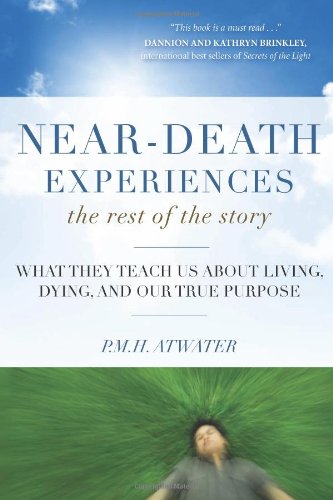

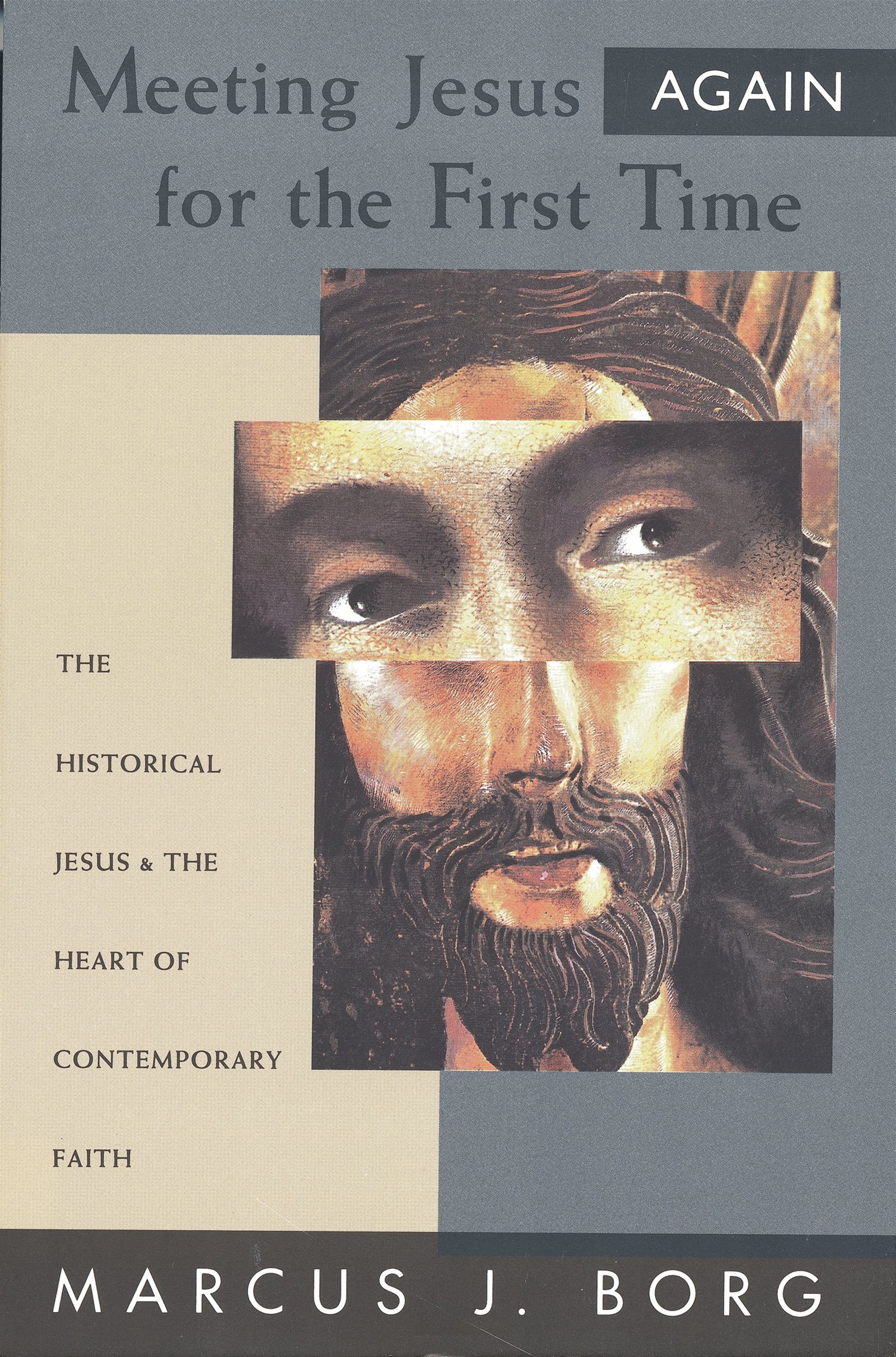
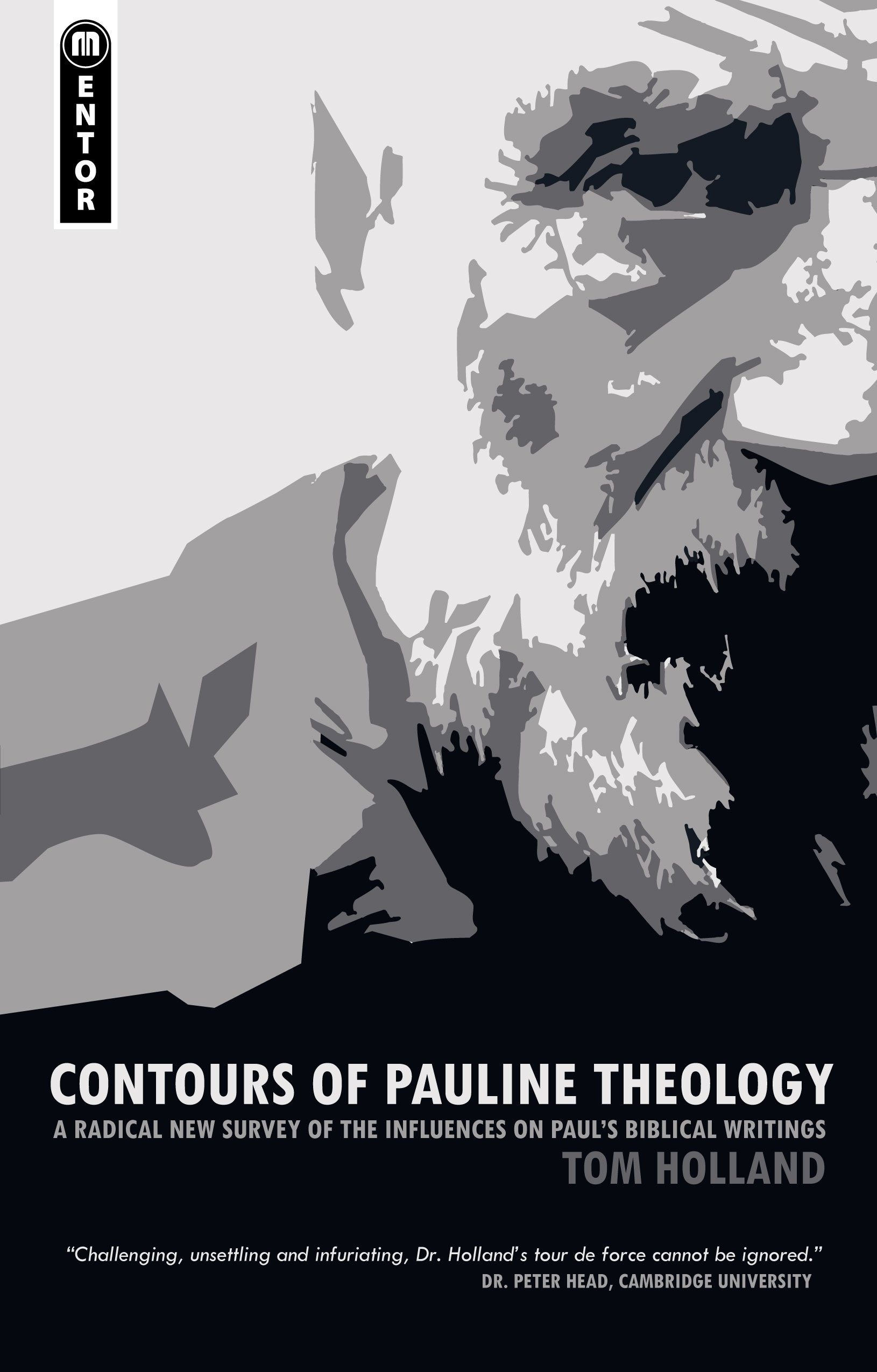



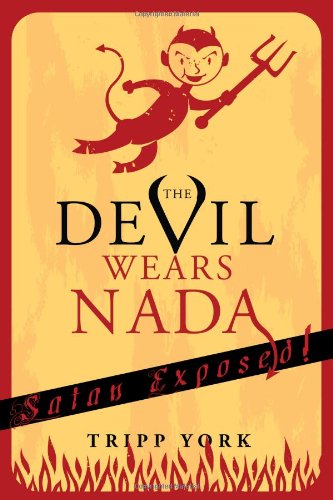
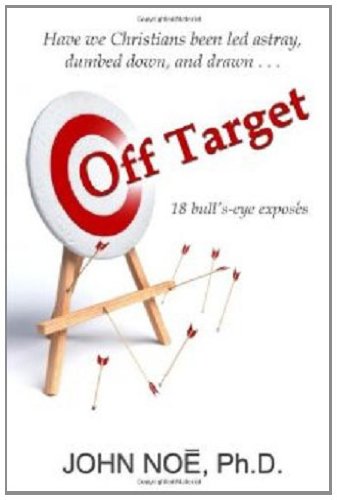
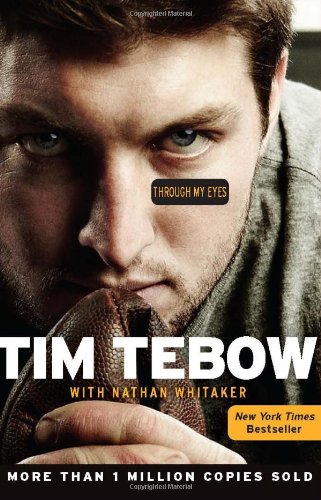
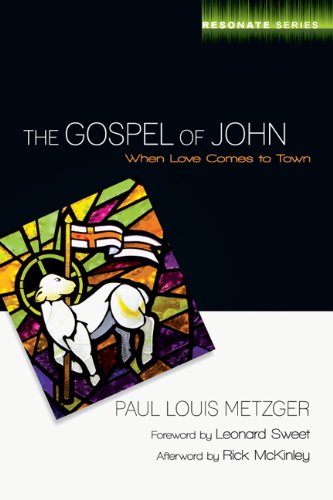
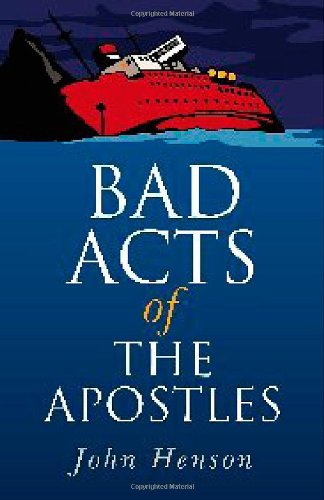
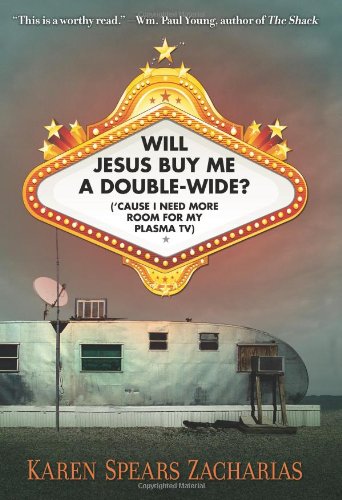
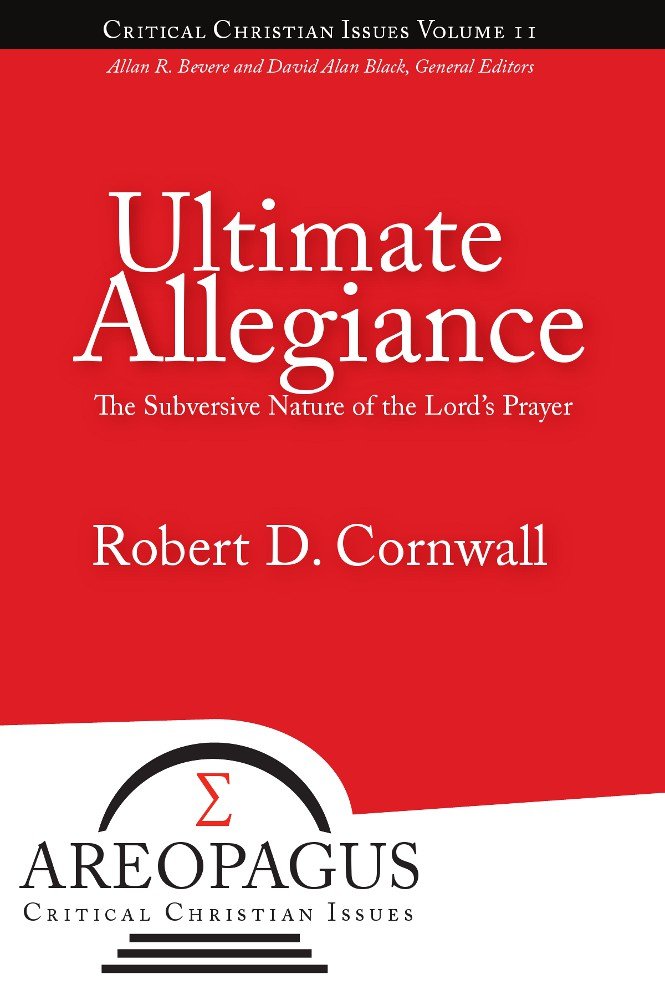
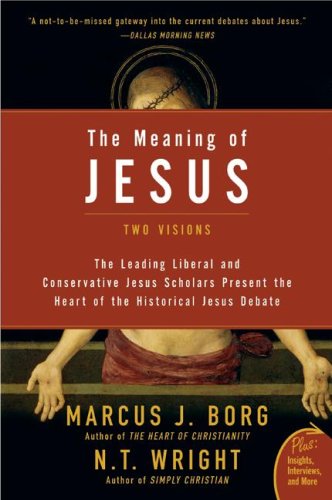
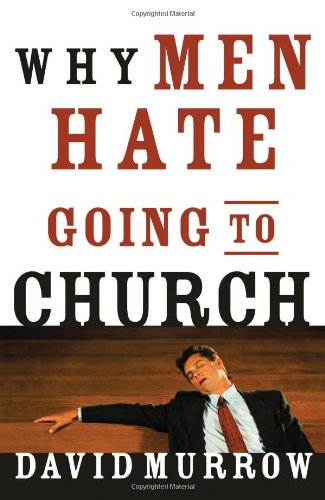

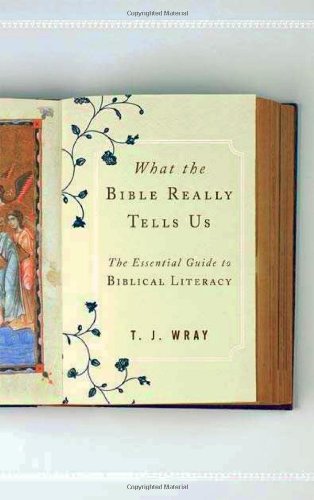

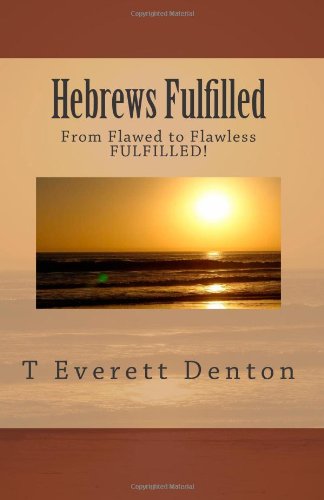









 354 Circles
354 Circles
 603 Goodreads Friends & Fans
603 Goodreads Friends & Fans

 Hello! I'm an author, historical Jesus scholar, book reviewer, and liberal Christian, which means I appreciate and attempt to exercise the humanitarian teachings of Jesus without getting hung up on any particular supernatural or religious beliefs.
The Bible is a magnificent book that has inspired and spiritually fed generations for thousands of years, and each new century seems to bring a deeper understanding of life’s purpose. This is true of not only Christianity; through the years, our age-old religions are slowly transforming from superstitious rituals into humanitarian philosophies. In short, we are growing up, and I am thrilled to be riding the wave.
I avidly read all thought-provoking religion titles. New authors: I'd love to read and review your book!
Hello! I'm an author, historical Jesus scholar, book reviewer, and liberal Christian, which means I appreciate and attempt to exercise the humanitarian teachings of Jesus without getting hung up on any particular supernatural or religious beliefs.
The Bible is a magnificent book that has inspired and spiritually fed generations for thousands of years, and each new century seems to bring a deeper understanding of life’s purpose. This is true of not only Christianity; through the years, our age-old religions are slowly transforming from superstitious rituals into humanitarian philosophies. In short, we are growing up, and I am thrilled to be riding the wave.
I avidly read all thought-provoking religion titles. New authors: I'd love to read and review your book!
 Hi! While Lee writes the articles and reviews the books, I edit, organize, and maintain the blog. The views expressed here are Lee's but I'm his biggest supporter! :-)
Hi! While Lee writes the articles and reviews the books, I edit, organize, and maintain the blog. The views expressed here are Lee's but I'm his biggest supporter! :-)
Connect With Me!